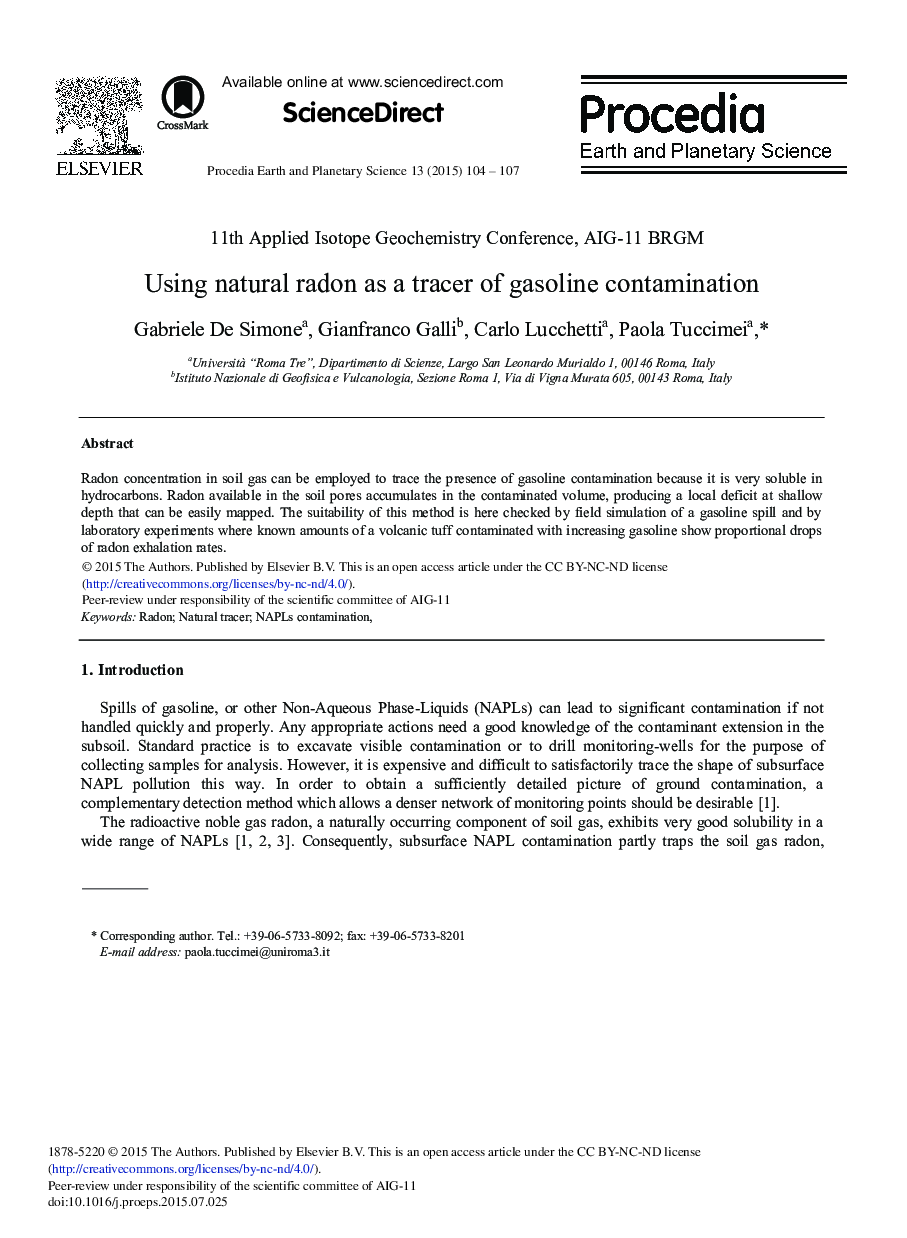| Article ID | Journal | Published Year | Pages | File Type |
|---|---|---|---|---|
| 4674782 | Procedia Earth and Planetary Science | 2015 | 4 Pages |
Abstract
Radon concentration in soil gas can be employed to trace the presence of gasolinecontamination because it is very soluble in hydrocarbons. Radon available in the soil pores accumulates in the contaminated volume, producing a local deficit at shallow depth that can be easily mapped. The suitability of this method is here checked by field simulation of a gasoline spill and by laboratory experiments where known amounts of a volcanic tuff contaminated with increasing gasoline show proportional drops of radon exhalation rates.
Related Topics
Physical Sciences and Engineering
Earth and Planetary Sciences
Atmospheric Science
